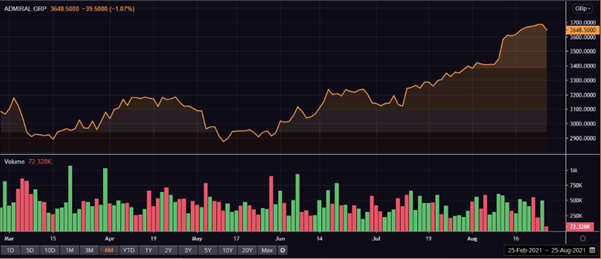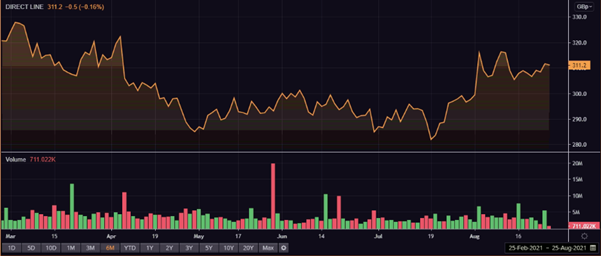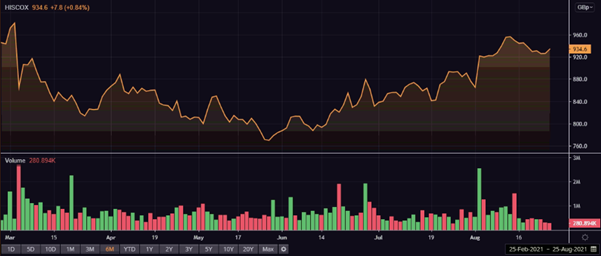Highlights
- Financial regulatory body Financial Conduct Authority (FCA) issued a final warning to insurers who were not yet ready to implement value for money rules.
- FCA’s updated product governance rules are set to come into effect in October.
- According to a May report, about 6 million policyholders could have had up to £1.2 billion in savings if average prices were considered instead of higher insurance prices.
UK’s financial regulatory body, the Financial Conduct Authority (FCA) announced today that insurers who have not yet implemented stricter value for money regulations for home and car related insurance policies would face regulatory action.
The move comes after a report published in May by the FCA found about 6 million UK based policyholders could have saved up to £1.2 billion based on average prices instead of the higher prices faced by customers.
The FCA had announced new car and home insurance related rules, which have a deadline less than two months away, as they are expected to come into effect in October after conducting a general insurance pricing study.
In view of this, let us take a closer look at the top 3 FTSE listed non-life insurance stocks and how they reacted to the news:
- Admiral Group PLC (LON: ADM)
FTSE 100 index listed firm Admiral Group is a UK based car and household insurance business.

(Image Source: Refinitiv)
Admiral’s shares were trading at GBX 3,647.00, down by 1.11 per cent on 25 August at 13:23 hrs gmt+1. Comparatively, the FTSE 100 index was trading at 7,140.74, up by 0.21 per cent.
The company’s market cap stands at £10.954 billion, and its one-year return is at 36.36 per cent as of 25 August.
The company recently announced its H1 2021 results, with its gross profits before tax rising by 76 per cent to £482.2 million from £274.4 million in H1 2020, due to positive claims experience. It also announced an interim dividend of 115 pence per share, up by 63 per cent from 70.5 pence per share in H1 2020.
Related Article: What made Admiral Group (LON:ADM) the top gainer of FTSE 100?
- Direct Line Insurance Group Plc (LON: DLG)
FTSE 250 index listed firm Direct Line Insurance Group is a UK based insurance business that was formed as divestment of the Royal Bank of Scotland’s insurance division in 2012.

(Image Source: Refinitiv)
Direct Line’s shares were trading at GBX 311.30, down by 0.13 per cent on 25 August at 13:34 hrs gmt+1. Comparatively, the FTSE 250 index was trading at 24,027.39, up by 0.5 per cent.
The company’s market cap stands at £4.187 billion, and its one-year return is at 2.07 per cent as of 25 August.
The company recently announced its H1 2021 results, reporting growth in operating profits by 39.6 per cent to £369.9 million, from £264.9 million in H1 2020, due to strong performance in its commercial, home and rescue insurance business segments.
It also announced an interim dividend of 7.6 pence per share, up by 2.7 per cent from 7.4 pence per share in H1 2020. Direct Line’s solvency capital ratio after dividend and share repurchase stands at 195 per cent, up from 191 per cent in H1 2020.
- Hiscox LTD (LON: HSX)
Hiscox offers various types of general insurance services such as small business insurance, home insurance and other products. It is also part of the FTSE 250 index.

(Image Source: Refinitiv)
Hiscox’s shares were trading at GBX 936.40, up by 1.04 per cent on 25 August at 13:54 hrs gmt+1. Comparatively, the non-life insurance sectoral index was trading at 3,537.83, down by 0.17 per cent.
The company’s market cap stands at £3.210 billion, and its one-year return is at 15.97 per cent as of 25 August.
The company recently announced its interim H1 2021 results for the six months ended 30 June. Hiscox reported its H1 2021 gross premiums increased to US$ 2,426.2 million, from US$ 2,235.5 million H1 2020 due to strong growth and across its three divisions.
It also announced an interim dividend of 11.5 cents per share as part of its progressive dividend policy.
Related Article: UK stocks to watch on June 29: Hiscox, JD Sports, ITV, Boeing, IWG
Bottom Line
The earnings results in the insurance industry indicate that the general insurance sector has rebounded. Thus, income investors seeking dividend paying stocks can consider these stocks if they are looking to invest in the non-life insurance sector. At the same time, investors must consider if the insurance stocks they are considering have complied with the new FCA rules as that may have an impact on its share performance if the regulator goes for any coercive action.
.jpg)




